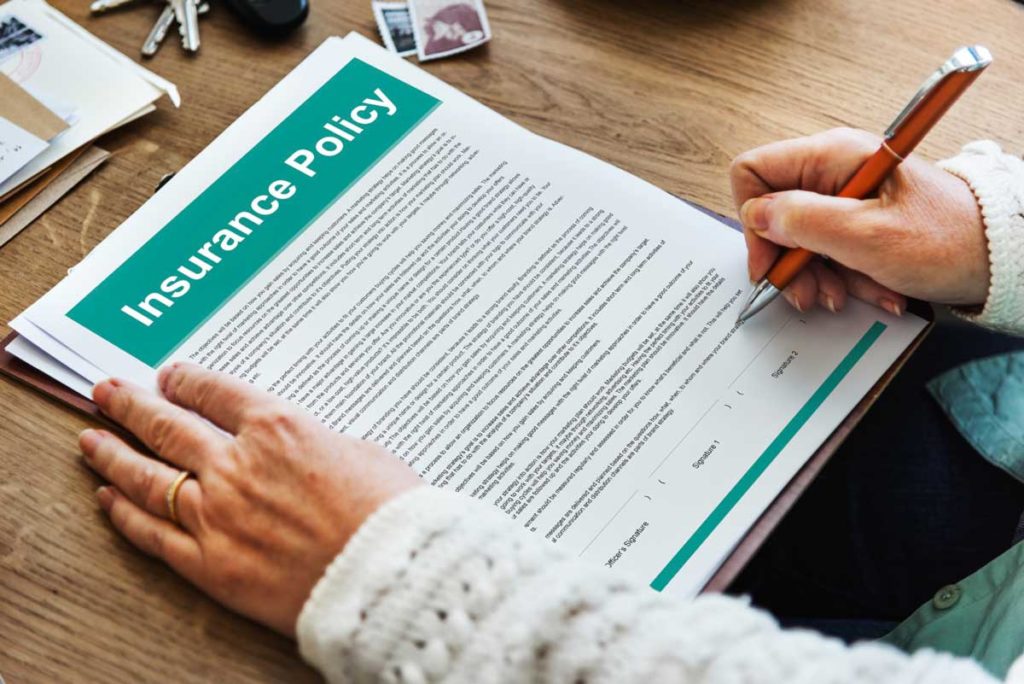Insurance for a rental property is an important piece of a landlord’s risk-management puzzle. However, insurance in general can feel opaque, and when you are preparing to rent out your property, determining the correct insurance can be easy to forget or ignore.
We often hear landlords asking, “what insurance do I need as a landlord for my investment property?” Or “is my homeowner’s insurance sufficient for renting my house?”
Now, I will start by saying, while I am a licensed insurance agent in California and have written hundreds of policies for real estate investors, I am not YOUR insurance agent, and just like any good doctor would tell you to discuss with your doctor, I will tell you this: Talk to your insurance agent before making any changes.
This information is purely to give you a better understanding of your needs, not to make recommendations.
To start out, let’s be clear: Can you use your existing insurance to rent out your home? No, you will need something different than your homeowner’s insurance policy for your rental.
There are 2 categories of insurance for rental properties — Insurance for a Single-Family Home, which we will address here, and multi-family properties (generally above 4-8 units).
In this instance, we are only going to be touching on the single-family homeowners — if you have multi-family property, check out our blog on multi-family insurance.
When you have a single-family home as a rental, especially one you recently lived in, it is extremely important that you clarify with your insurance agent that this is a rental property, and you don’t live in it.
When you live in a unit, you will have a Homeowner’s Policy.
When it is a rental, your policy is called a Dwelling Fire or Landlord Policy (depending on the carrier).
Of course, everyone is wondering, does a Dwelling Fire Policy cost more? Yes, a little. Generally, you will see a 10-20% jump in cost over your homeowner’s insurance premium.
Now, let’s take a moment to emphasize this point:
If your property is a rental, you must change your homeowner’s insurance policy to a landlord policy.
If you do not, and you rent out the home, you effectively have no coverage. Yes, even though you are still paying, you will have no coverage. There is no insurance company I am aware of that allows for a homeowner to move out without voiding their homeowner’s insurance policy.
This will also be a good time to discuss coverage with your insurance agent.
What Types of Insurance Do You Need for a Rental Property?

There are a few other key points in all property insurance coverage, that are worth you being made aware of:
- Dwelling Coverage—this is basically the amount the insurance company will pay to rebuild your property in the event of a total loss, like a fire.
- You can do some basic math on construction costs and square footage to see the amount of price per square foot you will have to rebuild. For example—if your home is 2000 sqft and you have $400,000 in dwelling coverage, your replacement cost calculation would be $200/sqft to rebuild the home.
- Note: Construction Costs vary; whether that $400,000 is enough or not depends on the finishes in your home, where it is located, economic factors, and so on… so, it is an important discussion to have with your agent.
- Also note, this is an important analysis for your property as a whole; while you may be able to save some money by lowering your replacement cost/dwelling coverage, in the event of a total loss, not only would the home likely not be able to be rebuilt, but it will also often come with a penalty to use the amount you have.
- Liability Coverage
- Liability is fundamentally split between 2 categories:
- “Slip and Fall” i.e., Personal Injury Coverage, which is basically protecting you from the risk of someone getting hurt at your property (and then suing you).
- Property liability—the less well-known sibling, which provides coverage in the event that a covered loss originates in your unit and damages a nearby property. Think bathtub leak in your condo that damages the condo below—that is Property Liability coverage.
- How much should you have?
- For a typical Landlord/Dwelling Fire Policy, max coverage will be either $300,000 or $500,000 in coverage. Ask your carrier, they will tell you. Whatever your options, select max coverage. We are talking about likely 10s of dollars per year and it is substantial protection in the worst-case scenario
- For a typical Landlord/Dwelling Fire Policy, max coverage will be either $300,000 or $500,000 in coverage. Ask your carrier, they will tell you. Whatever your options, select max coverage. We are talking about likely 10s of dollars per year and it is substantial protection in the worst-case scenario
- Liability is fundamentally split between 2 categories:
- Umbrella Coverage:
- What is it? Umbrella Coverage is technically “Excess Liability Coverage”; as both names imply, they provide further liability protection. The reason the colloquial has become “umbrella” is that this is “over and above” liability coverage that (generally) covers all of an insured person’s assets—think more coverage for your auto insurance, boat insurance, homeowner’s policy and RV policy. It goes over everything.
- Amounts: Umbrella coverage typically comes in increments of $1m. (So, you can buy $1m, $2m, $3m, and so on – you get the picture). The insurance rule of thumb is to have approximately the equivalent of your net worth in umbrella coverage—so if you have a net worth of $6m, have $6m in protection. There is some fundamental thinking behind this—effectively, the point of umbrella coverage is to protect your assets if you are sued, so if you have equivalent coverage to your net worth, it is rare that you could be sued for more than that. It’s a rule of thumb, not the rule of law.
- Cost: A single $1m umbrella policy generally costs between $150-200/year, making it an extremely cost-effective solution to catastrophic risk protection. Each additional $1m in coverage gets steadily cheaper, so $6m in coverage might cost between $600-$1,000 per year, for example. The reason for this, as briefly as I can make it, is that umbrella coverage is only used if the underlying coverage is exhausted. Meaning, if you get in a car accident, for example, the umbrella policy is not used until your $200,000 of car insurance liability coverage is used (which is obviously unlikely) making it very cheap for the value.
- Earthquake and Flood Insurance for a Rental Property:
- What are these: Earthquake and Flood Coverage are generally explicitly excluded as “covered perils” under your homeowner’s and landlord policy. This means that losses originating from flood and earthquake are not covered unless you purchase a separate policy. Depending on where you live, your mortgage company may require these coverages (look into natural hazard maps and zones if you would like to better understand how this is determined by mortgage companies).
- Earthquake Coverage: I am going to keep it brief; if you would like to look further into this, you can search the internet, there are govt.-funded and private insurance options as well. Fundamentally, this coverage is for catastrophic loss—for instance, if your house collapses. It doesn’t generally have traditional deductible options. Instead of a dollar sum, it has dwelling coverage percentage: 5%, 10% or 15% deductibles are common.
These deductibles are calculated as a percentage of your dwelling coverage amount, so if you had $1m in dwelling coverage, that would be a deductible of $50k, $100k or $150k—in other words, it’s a big decision. Talk to your insurance agent or carrier for greater understanding. Earthquake coverage can also be very expensive (meaning the risk of earthquake is higher) depending on where you are.
- Flood Insurance: This is also primarily a govt. coverage option, though private options do exist. Flood insurance has a similar set up to earthquake insurance (it is more common). If you live in a flood zone—near the coast, off an old riverbed, at the bottom of a hill—I highly recommend it. Don’t let the name “Flood Insurance” fool you, this is any exterior water (outside of rain) intruding into your home; it doesn’t need to be a levee- breaking Katrina-style flood event for you to need this coverage. Ask your agent to talk you through it.
- Optional/Additional Insurance for Rental Properties
- Sewer Back-Up
- There are several additional coverage options depending on the policy type, but this is the one that I think is most common and most important for landlords. Fundamentally, most landlord policies don’t cover for sewer back-up, which is a surprisingly common event for landlords. It is important to clarify with your agent on this—most people think that the covered water leak in their base policy means both clean and dirty water, when it rarely does. I highly recommend checking with your carrier and purchasing this coverage if you don’t have it.
- Lost Rents
- As a landlord, you want to make sure that you are covered for lost rent from your tenant if they are displaced based on a covered loss. Ask your agent, because the last thing you want is a large rehab project and no income in your first rental property.
- Sewer Back-Up
In sum, insurance is an important part of your risk management package as a landlord. As you can see, I hopefully provided a brief summary, a quick explanation, or the fundamental equivalent of pointing down the road and saying “turn right at the Taco Bell and keep going until you see the red mailbox, if you see a big, dead oak tree on the left, you have gone too far.” But, nonetheless hopefully it offers a quick overview of your needs as a landlord in the world of rental property ownership.
The main thing—go talk to your insurance agent. It is their job to steer you out of trouble as far as their coverage goes.
If you need help with the day-to-day property management trouble, feel free to drop us a line at Tenant Planet.
Otherwise, all the best in the world of investing. Owning rental property is a dangerous enterprise.
Stay safe.


